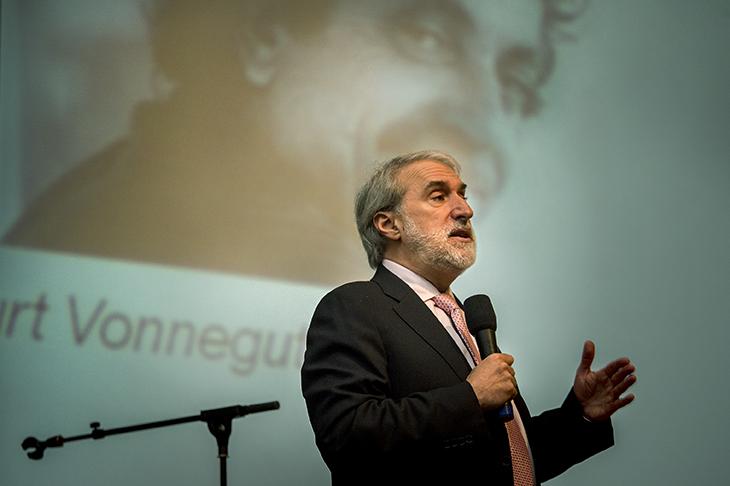Could ‘artificial leaf’ solve the global energy challenge?
Daniel Nocera, Harvard University’s Patterson Rockwood Professor of Energy, traveled to Tulane University on Sunday (Feb. 14) to propose a solution to the global energy challenge.
The challenge, Nocera explained, is that six billion residents of developing countries will require energy by 2050. “If these six billion people try to do what we’ve done, the world will not be sustainable,” Nocera said. He cited a number of resources which would vanish before meeting such demand.
The world requires a sustainable energy system, and Nocera claims to have created just that.
The world requires a sustainable energy system, and Daniel Nocera claims to have created just that.
“In 2006, science made a big advance by showing us the inside of a leaf,” Nocera said. For the first time, researchers could learn to replicate photosynthesis. Using this discovery, Nocera developed the “artificial leaf,” a design with the ability to convert and store solar energy.
“When the sunlight comes into the leaf, it is converted into a moving charge,” Nocera explained. “Once the leaf is energized, it converts water to hydrogen and oxygen.” The artificial leaf represented a tremendous breakthrough, but it was only part of the solution. Nocera turned to a relatively new branch of science called synthetic biology in order to complete his sustainable energy system.
“It works perfectly,” Nocera said, noting that the process is 10 times more efficient than the fastest plants. He believes that the system has incredible implications. It could allow energy sources to become localized, and it could remove wealth from the equation. Similar processes could also be used to generate clean water.
“Now, we can start thinking about people,” Nocera said.
Nocera was among TIME magazine’s 100 Most Influential People in the World in 2009 and has since received an Emmy nomination for his work.
The Tulane Department of Chemistry sponsored the lecture, an annual tribute to Hans Jonassen, who was a professor of chemistry from 1946 until his retirement in 1989.
Jamie Logan is a junior majoring in English and classical studies with a minor in psychology at Tulane University.

